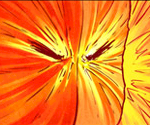Vincent Van Goatse posted:Is there much detail known about things like spying worked in Greece and Rome? I'm curious if there was an Imperial equivalent to MI6 or if there were stories about Gaius Julius Bondus or the like. You've gotta check out the story of Justinian's agents stealing silkworms, it's Cold War-esque. I'm pretty sure Grand Fromage talked about it at some point in this thread.
|
|
|
|
|

|
| # ? May 6, 2024 02:54 |
|
Jazerus posted:You've gotta check out the story of Justinian's agents stealing silkworms, it's Cold War-esque. I'm pretty sure Grand Fromage talked about it at some point in this thread. I thought that it was just a few random merchants who stole the silkworms, not an actual operation that Justinian ordered. Given what I know about Justinian though, I can totally see him as M, ordering agents around the globe to steal things that will make them even richer than they were.
|
|
|
|
Don Gato posted:I thought that it was just a few random merchants who stole the silkworms, not an actual operation that Justinian ordered. Given what I know about Justinian though, I can totally see him as M, ordering agents around the globe to steal things that will make them even richer than they were. They were monks who posed as merchants, and the silk industry became a very profitable state-run enterprise in the byzantine empire.
|
|
|
Don Gato posted:I thought that it was just a few random merchants who stole the silkworms, not an actual operation that Justinian ordered. Given what I know about Justinian though, I can totally see him as M, ordering agents around the globe to steal things that will make them even richer than they were. It's sort of half and half. The monks traveled to China, saw that silk was made by silkworms there, went to Justinian and said "hey we'll go rip some of these off if you want!" and of course Justinian agreed, promising them outlandish rewards and probably expecting to never hear from them again. They showed up two years later after smuggling silkworm eggs out in their canes, along with some mulberry bushes. Unfortunately, we don't know the details of their deception or journey but I'm sure it was a tense mission at times. Jazerus fucked around with this message at 22:42 on Sep 4, 2013 |
|
|
|
|
We don't know for sure what they were. Either they were actual legit monks who saw a chance for profit, merchants posing as monks, or spies sent by Justinian posing as monks. The results were the same in any case.
|
|
|
|
I wonder if they actually were rewarded or just told to get out after they handed over the eggs.
|
|
|
|
Either way it's some good movie material.
|
|
|
|
Some quick research tells me China was in one of its regular clusterfucks at the moment in time. If one particular silkhouse wants to sell some eggs to some shady dudes, and the local government doesn't decree or care, what's to stop them?
|
|
|
|
Phobophilia posted:Some quick research tells me China was in one of its regular clusterfucks at the moment in time. I've always thought that China is more impressive then the Roman Empire when you consider the fact that it's gone through roughly two dozen totally horrific civil wars that each make the Crisis of the Third Century look like a polite disagreement between three best buddies and has couple of invasions sprinkled in between that pretty much equal Huns and the German tribes combined, yet it still stands as (mostly) unified political entity that exercises great power throughout the modern world. Even the separated part that's thinks it's the real China and is tiny compared to rest is still one of the most powerful economies and advanced countries in the world. Then again, People's Republic of China probably has less common with whatever dynasty first ruled China then Italy has with the Roman Republic. Then again, maybe not! I don't admittedly know that much about China and how Chinese people view their own historical continuity as a state.
|
|
|
|
It's kind of a mess for how people view it because the PRC (and every dynasty, honestly) has spent a lot of time propagandizing things. It's impressive for sure, because there is definitely a common cultural thread you can trace back about four thousand years. And the idea of a Chinese state goes back to the Qin. The idea of a Roman state persisted a long time too, the difference is that Europeans sucked at maintaining it, while various Chinese dynasties have had a lot more luck. I've spent a lot more time getting into Chinese history lately, and your assumption is right--a lot changes over that time for sure. The Qing would not be recognizable to the Qin. But there's definitely something there that persists. One of the issues with Chinese history is the obscene nationalism and defensiveness. For example, the 5000 YEARS OF HISTORY thing is always present in all Chinese material, but there's zero evidence. Being very generous, Chinese history goes back 4000 years. 3600 is the number I'd use. But it's established as The Truth and you cannot say anything different if you want to work in Chinese history. That sort of thing is an issue in other places too, but no one is really getting their panties in a bunch about things like Rome's founding date the way China does. Probably because nobody claims to still be the Roman Empire. And then everyone in Asia has to be competitive, so every culture here claims the 5000 years of history. Korea does it and it's not even remotely close to being true.
|
|
|
|
I'd also wager the idea of China as a cultural and political thing is easier to maintain and construct throughout history because its western and northern borderlands contain more inhospitable terrain with a very low population densities. While this also held true for the Roman Empire's southern border, there definitely were a lot of people on its northern and eastern borders. The Sassanid Empire was a powerful entity in its own right, and both the Rhine and Danube are considerably more porous as borders than, say, the Gobi Desert or the Himalayas.
|
|
|
|
Yeah, it's worth pointing out that the part of China that is actually Chinese traditionally is fairly small compared to the full PRC of today. The area around Henan is where the Han are from. The western half of China to this day is largely uninhabited and the people there aren't Chinese. The northeast was Manchu, and the southern half was Hakka and Yi and whatnot, peoples conquered by the Han. Modern China is virtually the same size as the US but the inhabited, Chinese portion is much smaller and easier to keep together. In the Roman Empire you had major population centers scattered everywhere. Italy, Spain, North Africa, Anatolia, Egypt, and the Levant. China is much more concentrated along the eastern coast. Plus I'd argue that China as a political entity existed, but was never all that consolidated. Take the language map--only with the advent of the PRC has there been a concerted effort to make Mandarin the language of all Chinese people, whereas in the Roman Empire the Latin/Greek combo was well established. Even today China isn't unified that way. My two best Chinese friends come from Guangzhou and Henan, if they speak the language they grew up with they cannot understand each other despite both being Chinese, whatever that means. So basically I'd say Roman as a cultural/political group was much more homogenous than Chinese. At least until citizenship was granted to the entire empire.
|
|
|
|
Also as far as I've understood, any tribe who invades China and succeeds in it (I know that the Mongols and Manchu at the least managed to do that) just ends up thinking that being cultured, cosmopolitan Chinese is way more awesome then eating horses and sleeping under the night sky in yurts and after couple of centuries is basically indistinguishable from the rest of the people. No doubt aided by the fact that the domination of Han Chinese is just so overwhelming that you get absorbed by the horde whether you like it or not. Basically like the German tribes who admired Rome's culture and wanted to be Roman. Except that there weren't like 500 million conquered Latin Romans to outbreed and absorb their conquerors with passive ease in the case of Western Rome. I mean, the PRC today is what, 90% Han? You just can't fight that kind of numbers. And it's more fun just to go with the overwhelming flow anyway. EDIT: Not meaning this linguistically, but in general cultural sense. All the various Chinese dialects have more speakers then most separate languages after all. DarkCrawler fucked around with this message at 17:05 on Sep 5, 2013 |
|
|
|
Would someone be able to recommend me a good podcast on ancient Chinese history? I found one by Laszlo Montgomery, but that seems way more focused on relatively recent history, with the occasional topic on ancient history. Bonus points if it tells the history in chronological order.
|
|
|
|
|
Grand Fromage posted:In the Roman Empire you had major population centers scattered everywhere. Italy, Spain, North Africa, Anatolia, Egypt, and the Levant. China is much more concentrated along the eastern coast. I'm gonna go ahead and be a pedant: I don't really agree with that last sentence. I mean, it's true but you're comparing present-day China to the Roman empire. When you look at them during the same time period (say, 200 BC to 200 AD) China's core was pretty far inland. It's pretty telling that the first two capitals were hundreds of kilometers from the ocean. I think this also explains the way China kept reforming whereas Rome didn't: it's all a big contiguous landmass, not a bunch of places separated by the Mediterranean. It's got to have made reconquering China easier, if nothing else.
|
|
|
|
Kassad posted:I think this also explains the way China kept reforming whereas Rome didn't: it's all a big contiguous landmass, not a bunch of places separated by the Mediterranean. It's got to have made reconquering China easier, if nothing else. I think it would be less that it was easier to reconquer, but harder to exist as just a portion of the core area. Sooner or later your next door neighbour is going to try and swallow your rear end up if you don't do it to him first.
|
|
|
|
PittTheElder posted:I think it would be less that it was easier to reconquer, but harder to exist as just a portion of the core area. Sooner or later your next door neighbour is going to try and swallow your rear end up if you don't do it to him first.  Pretty much.
|
|
|
|
In someways I'd think the Mediterranean would make a large centralized state more likely to persist in Europe and western Asia, since before the modern era it was so much easier to travel by sea than overland. Southeast Asia makes for a strange contrast with China, since despite having large rice surpluses and frequent contact with India and China, it never developed the kind of centralized states common in those places. Even when large empires emerged, for example the Khmer Empire in Cambodia, they were pretty decentralized, almost feudal, and always somewhat unstable. This is probably related to the difficulty travelling during an extended rainy season, which made extending central rule almost impossible for large parts of the year, but I dunno.
|
|
|
|
It was my impression that the Mediterranean is trickier to navigate than it would appear to be on paper. It's not crossing an ocean but sea travel had its pitfalls. However, this may have been universal up until steamships. That said, you've got to remember that military force in the ancient world meant armies and you can't project military force over water (well, you can, but it's not the same as projecting your might over land).
|
|
|
|
Thwomp posted:It was my impression that the Mediterranean is trickier to navigate than it would appear to be on paper. It's not crossing an ocean but sea travel had its pitfalls. However, this may have been universal up until steamships. I don't think this is really the case. I'm certainly no sailing expert, but from what I've read the Mediterranean is basically non-tidal, so that's one big headache taken care of. Their big problem was that without some knowledge of magnetism it's really tricky to navigate anywhere where you can't see the land, because you can't hold a heading. Anyone know if sailors of the time had knowledge of finding north with Polaris? The name certainly sounds Latin, but that might have been an artifact of the Medieval period.
|
|
|
|
China's large rivers were also very useful for transportation, certainly freshwater navies figured much more prominently in Chinese history than European.
|
|
|
|
Thwomp posted:That said, you've got to remember that military force in the ancient world meant armies and you can't project military force over water (well, you can, but it's not the same as projecting your might over land). Yeah, travelling over water is easy, but invading over water is really drat difficult. Hence why Britain has only been successfully invaded twice and why Alexander had to build a huge land bridge out to Tyre.
|
|
|
|
PittTheElder posted:I don't think this is really the case. I'm certainly no sailing expert, but from what I've read the Mediterranean is basically non-tidal, so that's one big headache taken care of. Their big problem was that without some knowledge of magnetism it's really tricky to navigate anywhere where you can't see the land, because you can't hold a heading. I'm pretty sure the Babylonians already knew that the stellar sphere revolves around a point that's steady in the north. The hard part is judging longitude, not just fixing compass directions. The longitude problem didn't get solved until the 1700s. I forget the history of judging latitude at sea; I know it was solved on land in ancient times, but I'm pretty sure you can't set up an accurate gnomon on a boat, so the methods I'm thinking of wouldn't transfer. Probably can solve it with star charts and a sextant, but I don't know if the needed precision was around before the invention of the telescope.
|
|
|
|
Walliard posted:Yeah, travelling over water is easy, but invading over water is really drat difficult. Hence why Britain has only been successfully invaded twice and why Alexander had to build a huge land bridge out to Tyre. Romans, Anglo-Saxons, Danes, Normans, that's four successful invasions, isn't it? The two middle weren't exactly direct invasions as much as gradual settlements but they came with boats and conquered. And I'd say it's only really difficult if your enemy has a bigger and better navy then you. In all invasions of Britain there pretty much wasn't much of a navy to contest with. Tyre was a bit of a special case because the island was small enough to have walls right up to the sea, which meant that no matter how big your navy was it was going to be near-impossible. Constantinople was kind of a similar case (without being an island).
|
|
|
|
DarkCrawler posted:Romans, Anglo-Saxons, Danes, Normans, that's four successful invasions, isn't it? Five if you count the Glorious Revolution.
|
|
|
|
I wouldn't count Anglo-Saxons or the Glorious Revolution as successful invasions because they were invited by local potentates, and only began to conquer after establishing a power base on the British Isles. Not sure about the Danes because I don't know much about that period of history.
|
|
|
|
quote:And I'd say it's only really difficult if your enemy has a bigger and better navy then you. In all invasions of Britain there pretty much wasn't much of a navy to contest with. I think Britain is a good example of the general problems. Like you say, Julius Caesar faced no real "enemy navy", but he (despite a high level of general military competence at this point, and disorganized resistance) still just barely did something that can be qualified as successful. Subtract out the water in the middle, and I think he would have got much more done with less losses. Now surely Caesar could have done a better job there (and he got better over time), but I think it's fair to say water invasions were a challenge.
|
|
|
|
The Danes get in twice, for the ninth century invasions (up until Alfred) and for Canute.
|
|
|
|
Britain also has some nasty tides and storms you had to sail through if you wanted to invade, and the rocky coastline isn't easy to land on during a clear day, let alone the foggy hell that usually covers the island. I'd think that it was the tides as much as anything that made coastal invasions so difficult. A navy you can beat, but the tides pulling your ships to shore, possibly smashing them against the rocks? That's a little bit harder to deal with, especially if you're from a culture that never really had a seafaring tradition and also sailed in the mostly non-tidal Mediterranean. Outside of Rome, just look at how many people the Mongols lost just from the storms sinking their fleet when they tried to invade Japan. Flat bottomed boats, rocky shores, storms and crews that aren't used to the previous two is a recipe for disaster. Naval invasions are haaaaaard.
|
|
|
|
Kassad posted:I'm gonna go ahead and be a pedant: I don't really agree with that last sentence. I mean, it's true but you're comparing present-day China to the Roman empire. When you look at them during the same time period (say, 200 BC to 200 AD) China's core was pretty far inland. It's pretty telling that the first two capitals were hundreds of kilometers from the ocean. Okay east, not specifically the coast. There's a relatively small heartland sort of area that controlling seems to translate to control of China for all the dynasties. This is also something of an artifact of historians though. During the times when China is broken into multiple states, the one that controls the heartland is typically counted as the legitimate one if you ask. You have like the Jin people who are around for a good long time but aren't considered to count until they move into central China. I've only seriously gotten into Chinese history the past year so forgive me if I'm talking out of my rear end.
|
|
|
|
Don Gato posted:Britain also has some nasty tides and storms you had to sail through if you wanted to invade, and the rocky coastline isn't easy to land on during a clear day, let alone the foggy hell that usually covers the island. I'd think that it was the tides as much as anything that made coastal invasions so difficult. A navy you can beat, but the tides pulling your ships to shore, possibly smashing them against the rocks? That's a little bit harder to deal with, especially if you're from a culture that never really had a seafaring tradition and also sailed in the mostly non-tidal Mediterranean. There's also, to add to this, the problem of a small (in comparism to the locals) invasion force establishing control when it lacks a base there - with the Mongols again, they did make a successful naval landing (with Chinese and Korean troops as well, so it's not just a case of horse archers not doing well on the terrain) on Java, but were still forced off because they had no feasible way to actually establish control over the Javanese.
|
|
|
|
here's something I was thinking about the other day, Why is it that romans were capable of amazing and realistic statues yet nobody drew or painted photo-realistically the same way they did statues? was it just that paints and tools to draw weren't invented? was it that animal hide was poor compared to canvas and paper?
|
|
|
|
There was quite realistic and accurate painting. We don't have a lot of paintings because they fall apart in a way that statues don't, but look up places like the Villa of Oplontis or the House of the Vettii for some incredible preserved paintings.
|
|
|
|
Al-Saqr posted:here's something I was thinking about the other day, Why is it that romans were capable of amazing and realistic statues yet nobody drew or painted photo-realistically the same way they did statues? was it just that paints and tools to draw weren't invented? was it that animal hide was poor compared to canvas and paper? While the Romans and Greeks were already aware of the rough principles of perspective, it wasn't widespread in art until the renaissance. Both in antiquity and the middle ages it went against conventions of art.
|
|
|
|
In fact, many of their statues were actually painted back in the day, it's just that most paints don't take too kindly to the ravages of a couple of millenia. Of course, my first google search for examples turned up [uel=http://timesonline.typepad.com/dons_life/2007/12/were-ancient-st.html]an article arguing that not all the statues were painted, or at least not so ridiculously painted[/url], so take from that what you will, I guess.
|
|
|
|
They probably weren't all garish, but a lot were. You can't see the paint but with modern
|
|
|
|
Al-Saqr posted:here's something I was thinking about the other day, Why is it that romans were capable of amazing and realistic statues yet nobody drew or painted photo-realistically the same way they did statues? was it just that paints and tools to draw weren't invented? was it that animal hide was poor compared to canvas and paper? It was more a matter of style. Not all of our media and art is photorealistic either.
|
|
|
|
Namarrgon posted:It was more a matter of style. Not all of our media and art is photorealistic either. They were still much better sculptors than they were painters. Sculpting was basically mastered back in classical times, painting wouldn't be until the Renaissance. a part of it may have been due to lack of availability of materials- cheap paper, with which you can study all the techniques that got mastered in the Renaissance, wasn't available in Europe until it was spread from the Middle East, well into the Middle Ages -but it wasn't just that. There were some concepts they just didn't understand back in Antiquity. Koramei fucked around with this message at 15:46 on Sep 8, 2013 |
|
|
|
Yet sculpture was considered a much lower art form than painting. Artistic standards differ.
|
|
|
|

|
| # ? May 6, 2024 02:54 |
|
Which is really weird because seeing a Classical sculpture live is like one of the most amazing things you can ever experience. I was in the Vatican Museums and there was this room with incredibly detailed, twice-the-size-of-human statues of the major Roman deities just surrounding you and I have to admit that for couple of seconds I was totally a believer. A year later, Mona Lisa was kind of 'meh' after that.
|
|
|


















 Yes, it's like a lava lamp.
Yes, it's like a lava lamp.












